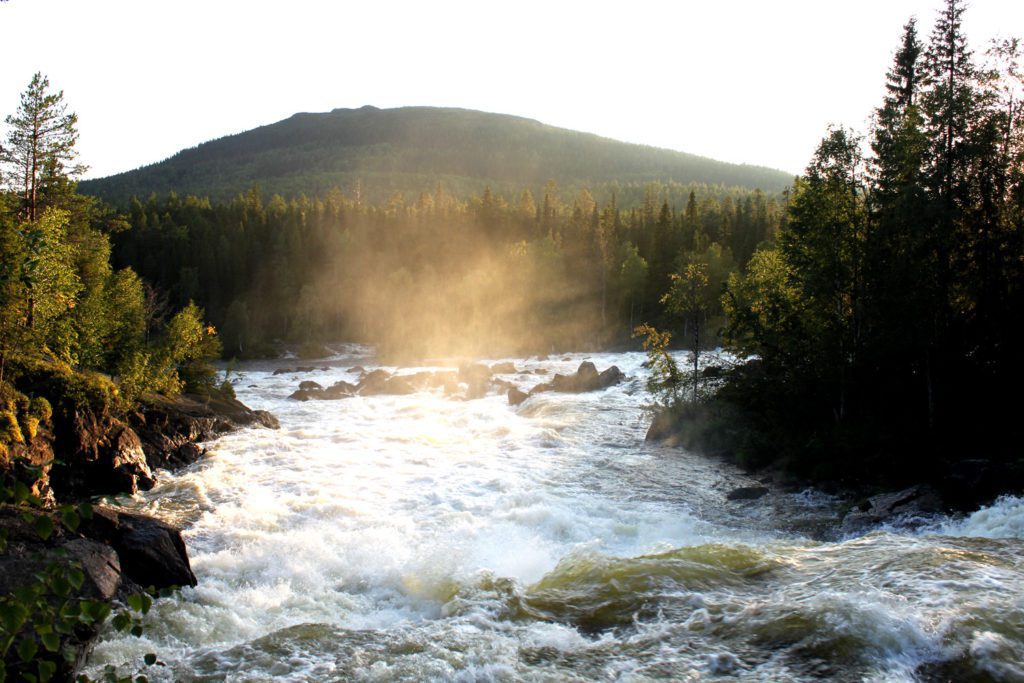Water Governance Across Europe: the EU Water Framework Directive
Water Governance Across Europe: In Light of the Review of the EU Water Framework Directive
01.02.2017, European Parliament Brussels
The Water Framework Directive (WDF) is EU’s forefront legislative instrument to protect European water resources. However, the achievement of the “good status” for EU waters as laid down in the WFD lags behind. To understand implementation gaps, the issue of governance is a key aspect to look at.
In order to discuss the main issues related to water governance at European level, to propose solutions and to address challenges such as climate change and water security the MEP Michel Dantin, organised the event “Water Governance Across Europe: In light of the Review of the EU Water Framework Directive”. The event took place in the European Parliament, last Wednesday, and counted with over 50 participants. Stefania Petrosillo, EUROPARC Policy Officer, represented the Federation in the meeting and shares with us the main topics discussed.
Water Management at a national and regional level
According to the European Commission, the Water Directive is working quite well at national level, and Member States and authorities are willing to implement it, even if many aspects have to be improved. However, some member States who have include directives in their legislation, also reduce funds and human resources, making difficult the appropriate implementation of the legislation in the ground (e.g. France).
Water governance is strictly interconnected with, and affected by, administrative and territorial reforms ongoing in many member States (e.g. in France and Italy), such as changing the administrative structures (regions, municipalities, etc.); creating new and different authorities and altering the roles and responsibilities on water issues. Thus leading to legal uncertainty, loss of administrative know-how and poorer implementation of the Water Directive Framework.
Challenges and… solutions?
Water is vital for survival and impacts many different sectors – from privates and families, to farmers, or big industries. How to manage this demand and possible competition? And the scenario gets worse, as drinking water is a decreasing resource, and it is specially complex to manage in urban areas. How to guarantee the general access to water, despite the costs of service and infrastructures, specially relevant in Europe’s current financial situation?
However, before all other questions, comes the critical one: how to manage/stock it, preserving the environment and biodiversity? The management of common water resources across borders, as for example what is being done with the Danube river, can be of good inspiration to other European areas. Natura 2000 and national and regional Protected Areas play a crucial role in protection of the resource.
 Kivakkakoski water fall © Paanajärvi National Park, Russia
Kivakkakoski water fall © Paanajärvi National Park, Russia
More than ever, cooperation and creative solutions are needed. Stakeholders involvement and awareness raising was one of the main points of discussion, however, indicators to monitor and evaluate the efficacy of the different governance models are lacking. The need to have better scientific data, accessible and liable, was also mentioned as necessary for decision making.
Water Policy in Brussels
Water is absolutely connected with many other policies, hence way coherence in needed. At a Commission level, for example, the Commissionaires responsible for Agriculture and Rural Development (Commissionaire Hogan) and Environment, Maritime Affairs and Fisheries (Commissionaire Vella) are already working together on the topic, and pushing other DGs to work closer. The Water use policy is also linked with Circular Economy and the European Commission is already promoting initiatives for reusing water in agriculture.
Kkeynote speakers mentioned also how international solidarity is ethically mandatory with no-European countries affected by lack of access of water.
MEP Michel Datin, organiser of the event and the Chair of the “Agriculture & Water Management” Working Group of the EP Intergroup on “Climate Change, Biodiversity and Sustainable Development”, referred that unfortunately water is considered by elected politicians (MEP, local mayors etc.) a technical issue and not a crucial political issue: it is necessary to increase the politicians awareness.
Datin closed the event with some recommendations:
- transparency and access to data is needed, and collaboration with scientific;
- solidarity among all public and private sectors, as well as within the same sectors (e.g. industry) is needed;
- coherence among policies is needed;
- it is necessary to find way to evaluate the administration results and governance.
Downloads
Agenda; List of participants; Presentations available:
Water governance across Europe in light of the review of the WFD, Bruno Tisserand, EurEau President
Water Governance – Bridging the gap between policy and implementation, Alejandro Iza, Environmental Law Programme
Final official report: will be available soon